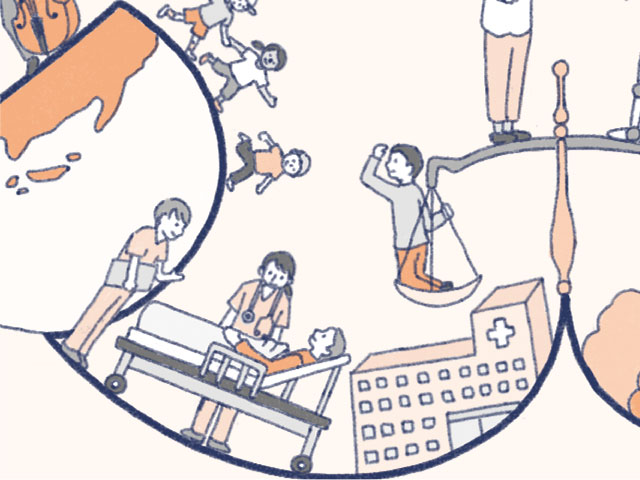Missions
Our Missions
The Department of Public Policy was established in April 2007. We conduct a variety of research topics in an interdisciplinary manner, while keeping the following four missions in mind:

01
We identify the construction of issues, develop responses, and devise strategies necessary for medical science to be conducted with solidarity and understanding in society. Particular emphasis should be placed on measures that will enable both research participants and researchers to build a relationship of trust.

02
We highlight and predict the impact of medical science and its outcomes on society from various perspectives. We particularly emphasize research from the perspectives of patients, people with disabilities, families, and gender.

03
We contribute to the practice of dialogue with researchers, based on the "partyhood" of sample donors and research participants, and with “reasonable accommodation”; and

04
We actively participate in education related to new research fields, with a focus on ethical education related to life science and medical research. In particular, the DPP-IMSUT supports the bridging of disciplines from the humanities.
In relation to these missions, the DPP-IMSUT brings together people who are interested in medical sciences while integrating disciplines in the humanities and social sciences.
We are committed to fulfilling our role as a link between researchers and patients/citizens, constantly keeping public involvement and patients’ perspectives in mind. We are also concerned with the ethical, legal, and social issues associated with the implementation of various research modalities (e.g., genomic research, stem cell research, non-medical preventive interventions, vaccines, etc.) and budding technologies (e.g., medical AI) for cancer, intractable diseases, dementia, and infectious diseases, as well as the constant revision of already established ethical policies and regulations (e.g., laws, guidelines, ethical review boards, etc.) and the management of research infrastructures (e.g., biobanks, registries, etc.).
